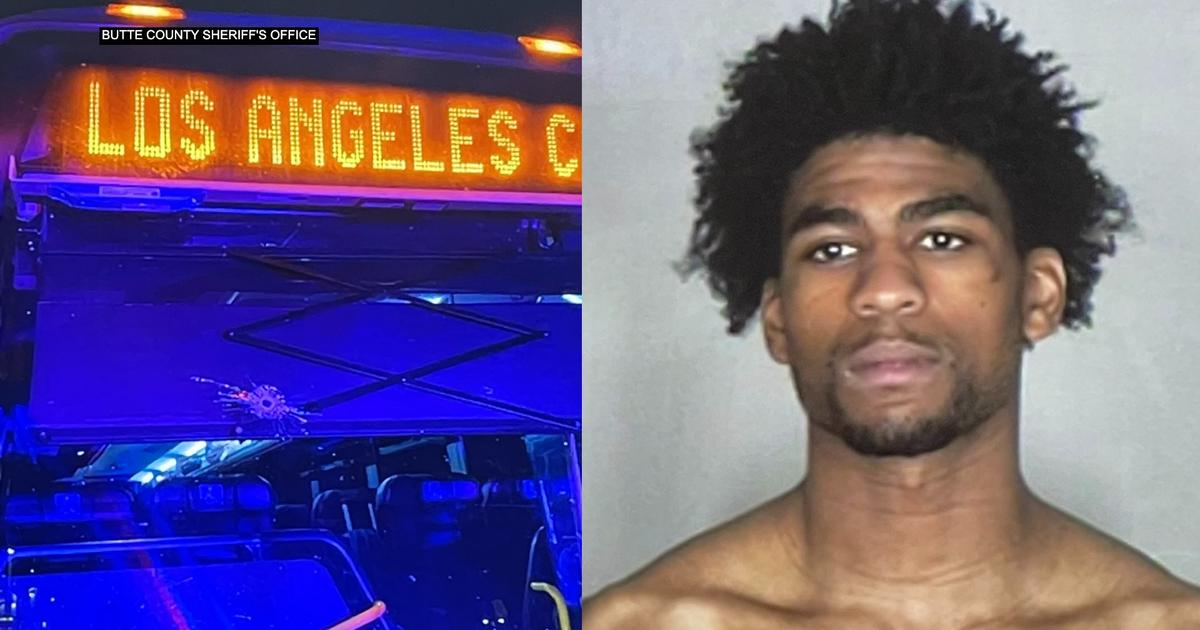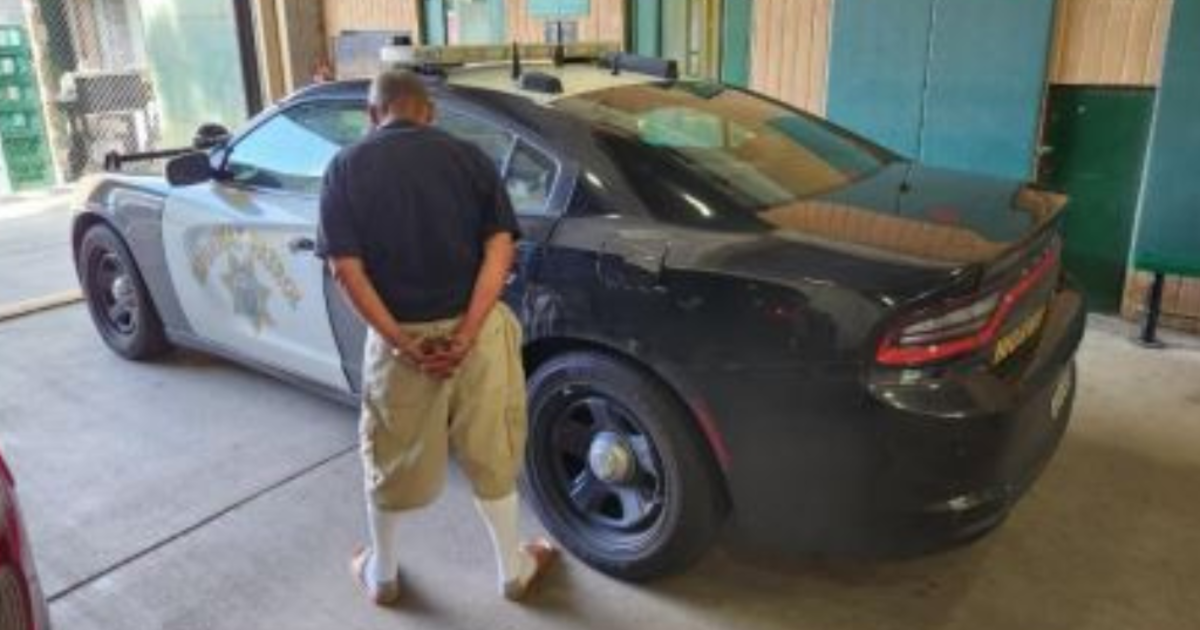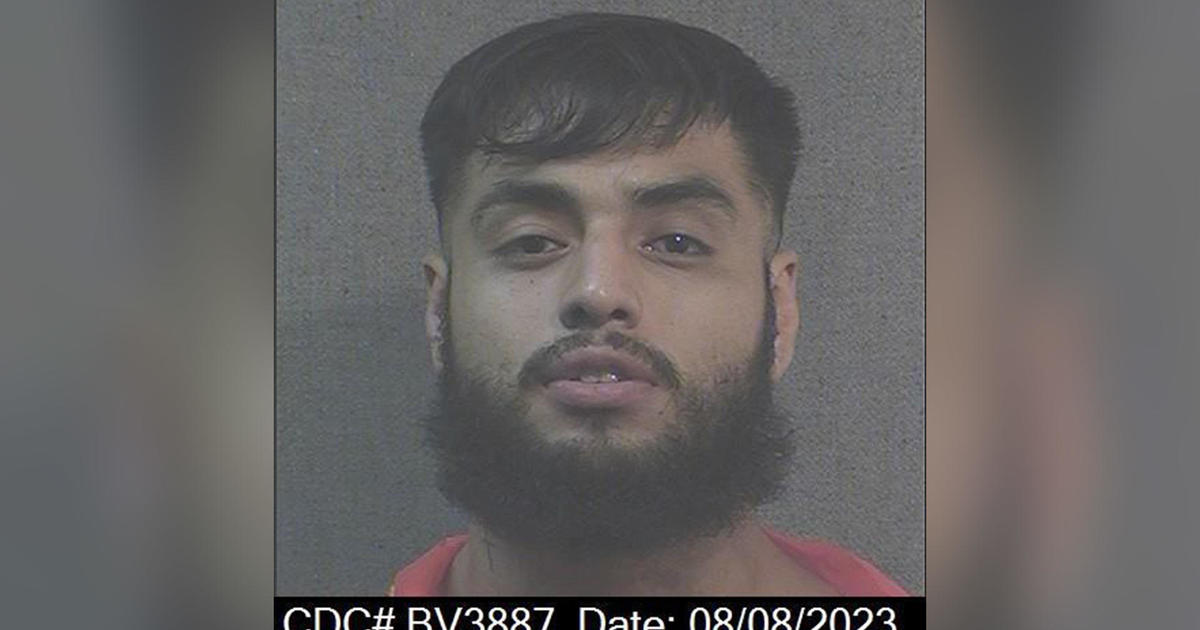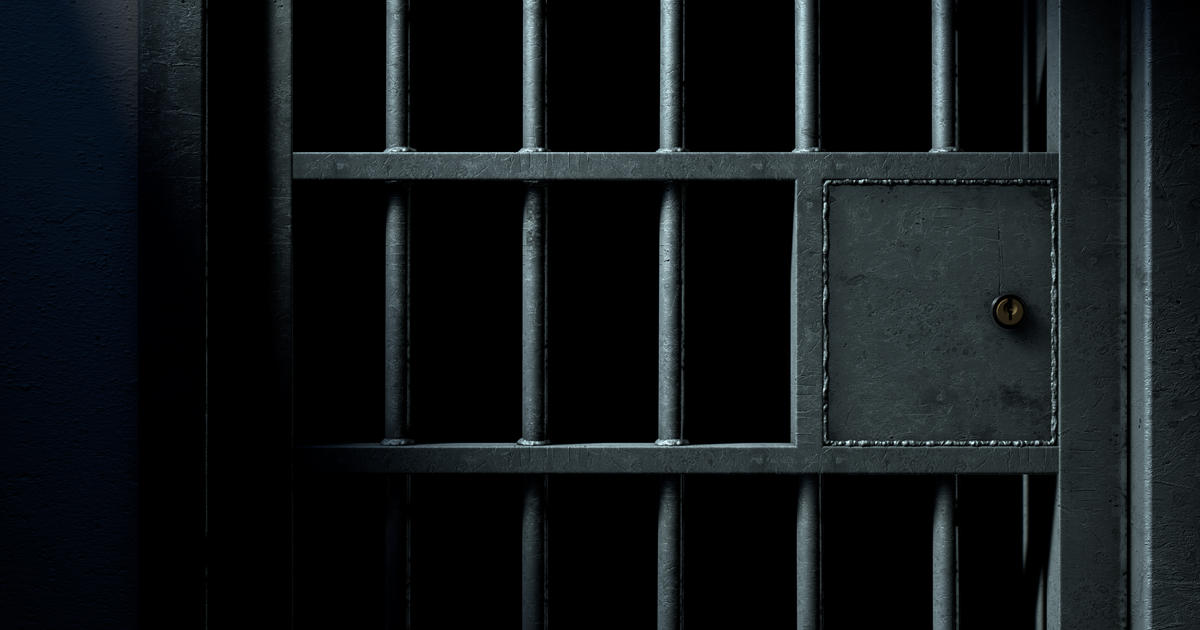"Secret" Prop. 57 prison credits: Are most felons really "earning" early release?
When voters approved Prop. 57, the California Department of Corrections and Rehabilitation (CDCR) said inmates would earn early release credits for rehabilitation, good behavior, and education milestones, and would lose credits for bad behavior.
But critics argue that's not the case anymore and there's little transparency. They point to Sacramento mass shooting suspect, Smiley Martin, as a prime example.
Smiley Martin as a Prop. 57 Case Study
Less than a year before the deadly Sacramento mass shooting, suspect Smiley Martin was deemed too risky to be paroled. According to his parole denial, he was found guilty of battery on a prisoner and allegedly engaged in other criminal activity while incarcerated. He had more than five years left on his 10-year sentence when he was denied release.
Yet a year later, detectives say these images allegedly show Martin firing into a crowd at rival gang members with an automatic weapon, just feet from the state capitol.
So how was Martin out of prison the night of the Sacramento mass shooting?
The Domestic Violence Non-Violent Loophole
First, he'd been serving time for domestic violence, which isn't necessarily classified as a violent offense under California law, so Martin was eligible for a non-violent offender parole review in 2021.
According to court records, Smiley had been sentenced to a total of five years for crimes stemming from acts of domestic violence in 2018. But that sentence was doubled to 10 years under California's three-strikes law because he had a prior violent-felony strike on his record.
However, under the voter-approved Prop. 57, all non-violent offenders are eligible for a parole review after completing their primary sentence. Martin had received 508 days of pre-sentencing credits, so he was granted a parole review in 2021 after approximately three years and four months in prison.
Two Ways Out Under Prop. 57
Ultimately, the parole board found Martin had not done enough to earn his release and that he posed a continued "risk of violence or significant criminal activity." They denied his nonviolent parole review in May 2021.
However, under another aspect of Prop. 57, all non-violent offenders are also eligible to earn credits for good conduct, education, and rehabilitation.
Despite a prior violent felony conviction and alleged violence while in prison, Martin was still considered a nonviolent offender. So, less than a year after CDCR denied his parole due to his "unreasonable risk of violence" and "criminal activity," the agency released him anyway, saying Martin earned enough credits for release under Prop. 57.
Notably, if he had been released following the Prop. 57 parole review, the district attorney and Martin's victim would have been notified of his release. Instead, CDCR was able to release him without notification months later by issuing him credits, stating, "he completed his term as defined by law."
But they won't reveal that credit calculation.
"Secret" Prop. 57 Credit Calculations
Yolo County District Attorney Jeff Reisig and El Dorado County District Attorney Vern Pierson are among many who argue that, under the voter-approved Prop. 57, the credits were supposed to be earned for good conduct and rehabilitation.
"They're doing it in secret because they don't want to be called out," said Pierson.
"The public has a right to know what these people are doing to rehabilitate themselves," Reisig said
They argue everyone is getting the credits now, whether or not they were earned, and they point to Smiley Martin as just one example.
"That's really the dirty secret on these enhanced credits that they are awarding to people like Smiley. They didn't earn early release," Reisig said.
CDCR says it also has the "authority to make credit changes to reduce the prison population." But the district attorneys believe CDCR is purposely hiding the calculation for felons like Martin because the agency knows they are not being distributed in the way voters intended.
"They can't provide an adequate explanation of how they calculated those credits," Pierson said.
What CDCR Records Reveal
CDCR denied our public records request for Martin's calculation, claiming credit-earning information is confidential and saying only "incarcerated people can receive credits for good behavior, as well as program participation and completing educational programs."
But records obtained through public court filings reveal that the parole board found Martin didn't do much to earn rehabilitation credits.
Less than a year before his release, the parole board found he had "limited" program participation, including one month of dining room work, four-and-a-half months of computer/technology courses, six months of a substance abuse program, and just 12 hours of a victim awareness program.
Based on CDCRs public credit earning breakdown, that would equate to weeks of credit, not years.
Even CDCR Insiders Are Confused and Call for Transparency
"From what I've read, he did not participate in any meaningful rehabilitative programs," former CDCR secretary Ralph Diaz said in an interview.
Diaz, who helped establish the initial Prop. 57 credit system, retired during the pandemic so he hasn't seen Martin's full credit calculation.
However, based on the public information provided, even he's confused.
"I can't calculate how he got out in the time that he did," Diaz said.
Still, he's a firm defender of CDCR and of what he says is supposed to be an "earned" credit program.
"I have seen many individuals change their life. They change their criminal behavior. They've earned their release," Diaz said. "I don't see that applied in this case."
Diaz admits he's concerned about the lack of transparency at CDCR and believes new legislation may be necessary to compel the agency to disclose credit calculations to the voters who passed Prop. 57 in the first place.
"They've earned the right to know these calculations," Diaz said.
CDCR tells CBS13, it "has implemented various credit-earning opportunities to incentivize good behavior and program participation for incarcerated individuals." In a statement, a representative points to their authority under Prop. 57, which they note "was overwhelmingly approved by voters in 2016."
Except, records indicate, Martin was accused of criminal activity while in prison and, in his parole denial, CDCR itself found he had limited program participation. Yet, CDCR says he earned enough credits to qualify for release four years and one month into his 10-year sentence.
Crunching The (Public) Numbers
CDCR won't confirm Martin's credit calculation. But, based on standard good conduct and rehabilitation credits for all incoming non-violent offenders, it appears Martin could have been released, when he was, without participating in any rehabilitation programs at all.
Here's one possible calculation:
- 10 Years: Martin was sentenced to ten years or 3650 days
- - 508 Days: CDCR says he received 508 days of pre-sentencing credits, which was roughly twice the time he actually spent in jail before sentencing.
- 8.6 Years: That would have cut his sentence to a little over 8 and half years, or 3142 days, by his very first day in prison.
- - 1,571 Days: Then, under Prop. 57, CDCR now gives a minimum of 50% good conduct credit to essentially all non-violent offenders, which could have cut Martin's remaining sentence in half.
- 4.3 Years: This would bring us to a little over four years and three months in Martin's case.
- - 84 Days: Then, anyone without a serious rules violation got 12 weeks of "extraordinary conduct credit" during the peak of COVID since most rehabilitation programs were canceled between March and July of 2020.
= 4 Years, 27 Days: This would bring us to 4 years and 27 days, which is approximately the length of Smiley Martin's incarceration, January 2018 - Feb 2022.
Notably, this is what a non-violent offender would have received with full good-conduct credit. Martin is accused of criminal activity while in prison, so he should have had time added to his sentence. Additionally, the above calculation assumes he received 50% credit for his entire term. Martin should have only received 33.3% credit for his first couple of years in prison. CDCR increased the credit calculation to 50% beginning in May 2021.
This example underscores the opaqueness of CDCR's credit calculation, which is a source of frustration for many.
Martin's release doesn't add up based on CDCR's public-credit calculations and that is leading to bigger questions about Prop. 57 overall.
"Are the current regulations of Prop. 57...providing the fruit that was intended?" former CDCR secretary Diaz wants to know.
"Why are these people being released early with credits that they've never earned?" asked D.A. Reisig. "They haven't rehabilitated."
Yolo Co. Data: 44% Of Inmates Released Under Prop 57, Reoffended
The Yolo County DA pointed to data, compiled by his office, which indicates that nearly half of the felons who were granted early release under Prop 57 since 2020 have now reoffended.
According to records provided by the Yolo County DA's office, eight out of the 18 felons who were convicted in Yolo county, and who were later released early by CDCR under Prop 57, have since reoffended and are now back in the system.
Records indicate that one is now accused of committing unemployment fraud while in prison before he was released early from prison based on his good behavior and rehabilitation.
Another man is now charged as a felon in possession of a firearm and a large-capacity magazine.
Records indicate, yet another man, released twice under Prop 57, once in 2018 and again in 2020, is back in the system again, now accused of attempted robbery.
Reisig hopes, in the wake of the Sacramento Mass Shooting, that releasing this Prop 57 reoffender data will be eye-opening for lawmakers and the voters who passed Prop 57.
Editor's Note: This story was updated on 10/11/2022




